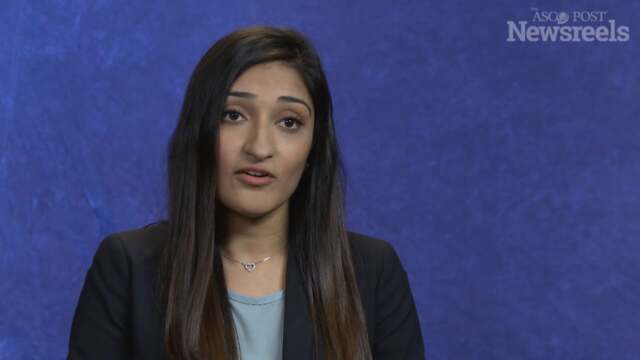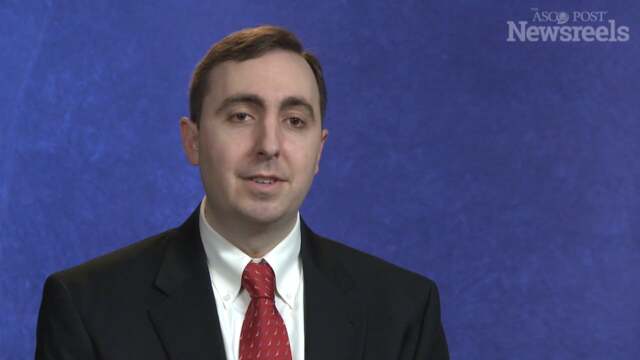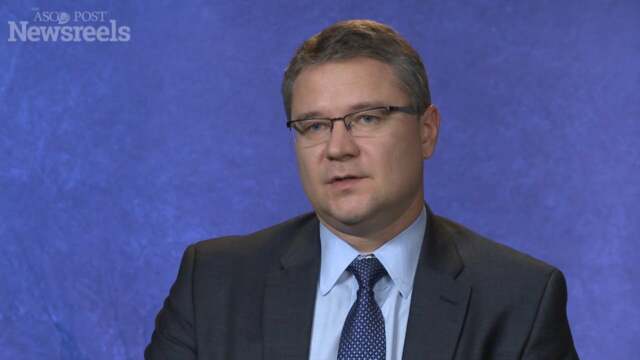Maximilian Diehn, MD, PhD, on Liquid Biopsies/Cell-Free DNA: Clinical Uses
2017 Multidisciplinary Thoracic Cancers Symposium
Maximilian Diehn, MD, PhD, of Stanford School of Medicine, discusses promising clinical applications of circulating tumor DNA in patients with thoracic malignancies: noninvasive detection of resistance mechanisms to targeted agents and treatment response assessment.
Shraddha M. Dalwadi, MBA, MD Candidate in the class of 2017 at Texas A&M Health Science Center, discusses findings from a SEER database study that showed African Americans and American Indians with stage I non–small cell lung cancer were less likely to receive definitive treatment and had lower odds for survival (Abstract 9).
Charles B. Simone, II, MD, of the University of Maryland Medical Center, discusses results from a large prospective study in locally advanced non–small cell lung cancer, which suggest that circulating tumor cells may be a promising biomarker of progressive or recurrent disease and may help guide early salvage treatment strategies (Abstract 3).
Tracey L. Evans, MD, of the University of Pennsylvania, discusses the data supporting use of chemotherapy with radiation in locally advanced non–small cell lung cancer, targeted treatments and immunotherapy, and some of the controversies now debated.
Kamran Ahmed, MD, of the H. Lee Moffitt Cancer Center and Research Institute, discusses results from a small study of pneumonitis in patients who received thoracic radiotherapy within 6 months of anti–PD-1 therapy, anti–PD-L1 therapy, anti–CTLA-4 therapy, or some combination of these drugs (Abstract 10).
Boris Sepesi, MD, of The University of Texas MD Anderson Cancer Center, discusses immune cells within tumors and the potential role for checkpoint inhibitor therapy in the neoadjuvant setting of locally advanced lung cancer (Abstract 7).





